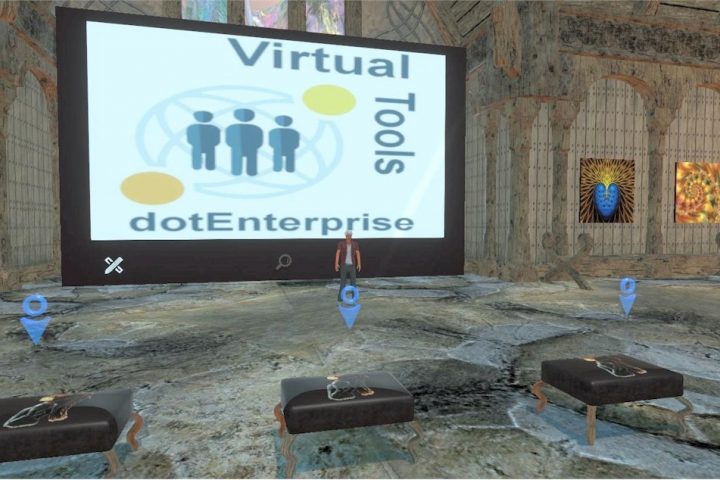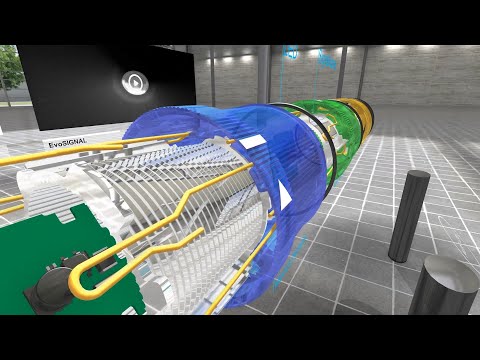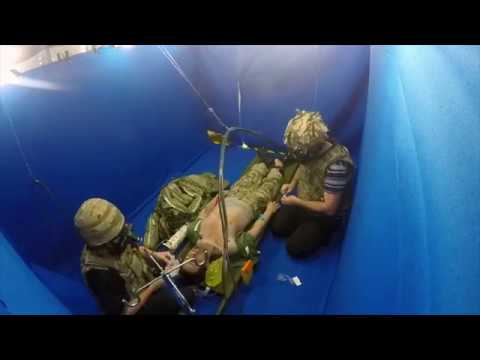A proposition for an another digital era’s education.
“I’m writing this paper based on my experience of teaching math&physics in high schools and also on my knowledge of enterprise business processes automation & optimization.
It will be a non finished paper until end of January(?) 2020. I’ve a lot of ideas to put in, many of them I hope will be corrected, amended or validated by the readers… My expectation is that at the end, after your comments, ideas and insights, to have a viable and challenged proposition for a real change in kids education in the digital era for teachers.”
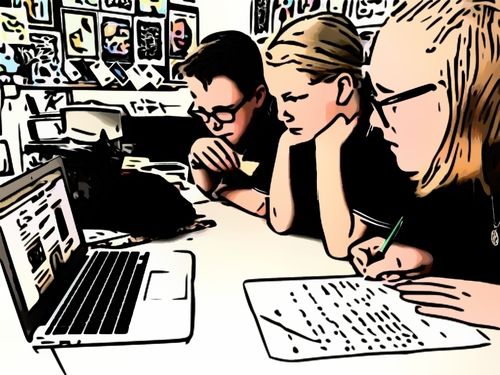
I’ve discussed with few people about how to bring a real digital culture in schools because what’s is going there is (truly) a dramatic waste of time and resources… and intelligence!
If you want to disgust someone from computer science, send him/her at a “computer class” in an elementary or high school …
(Most of) the teachers spend their time on how to write a text in word (or other) make it bold, italic or center a sentence!
Years after years… Nothing is changing.
Really boring and out of date. 🙁

What could be the best thing to teach to kids (from 7 to 18) in order to help them in this digital era?
The tech guys I’ve met have the same views: “start by teaching code to the kids.”
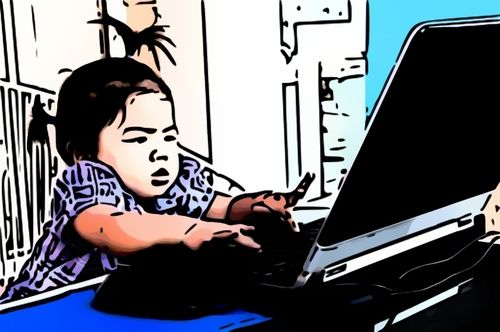
I have an another proposition…
For me, it’s like trying to teach the chemistry of cement with the intention to build a brick.
There are many reasons to not do that, we agree for this specific case.
But coming to the digital matter it’s exactly what will happen if today we teach our old and dying way of programming to the kids.
IT (Information technology) is vast and in constant transformation.
The way we are coding today will be obsolete very quickly (more faster than the previously).
Because of AI. Code generated by Artificial Intelligence.
That’s why, I think that teaching kids how we code today with the 4th generation language today is a waste of time.
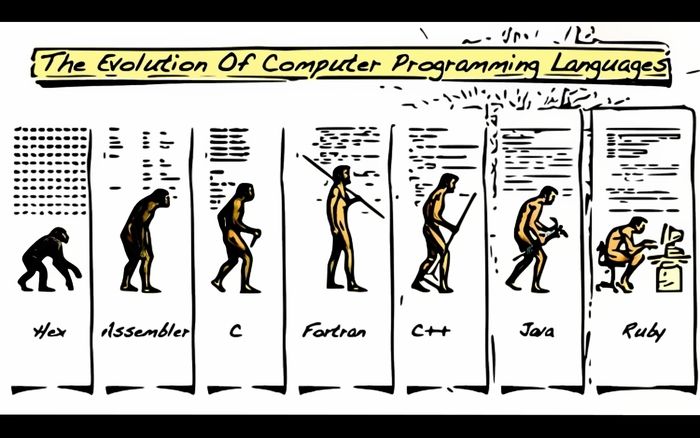
And it won’t help them to be prepared for the coming AI’s era.
Because most of the programs in 5 or 10 years will be AI generated as I said.
To build an app, the programmers of the future will be using AI agents: the need of low level code will remain but it will be rare and matter of some specialists …
They will talk, combine and run AI agents in a more natural way.
So in my opinion, they best way will be to teach how to well define a need, ask the good questions and model the answers. As if they were collaborating with some digital agents…
The change is urgent
And we are quite running out of time…
Our educational system is a kind of black & white picture in a world of colors.

It has been designed all around the world to generate a 3th generation industrial workforce which main skills have been used to build the actual economy.
These industries (not only manufactures…) have been designed using linear procedures.
Automating the production’s tasks are quite easy. That’s what’s coming… All the actual developers are working even if they don’t known that, to create the modules of the future automated “procedural world”.
Once we’ll reach a certain level of automation, the jobs we know will be disappearing like in the Tetris game.
The only reason which is slowing down the jobs disappeareance is that the workers didn’t learn how to abstract their business processes. So they are not really usefull to help in this automation process. (* see the comment)
Thanks God ! :o)
But the global automation will come. We can’t stop it.
The new era coming has the pace of the digits.
We won’t be able to compete with the AI generated code in terms of accuracy and complexity…
So trying to make kids write their first “Hello world” is may be funny (not so… as think many code evangelists :p). Ask the kids…) but it is not efficient if we want to prepare them for the (near) sci-tech & digitalized future.

What to do?
There are many possibilities, but here are some ideas I’ve in mind. Most are questionable and I’ll be happy to be challenged.
Schools shoudn’t be no more a place where you go to get answers to questions you didn’t ask. Children should go to learn how to better define a need and learn how to ask questions to solve problems.
Solving problems will be the key.
Today all the courses focus on details which loose children because they don’t learn how to connect the dots… Each matter seems to be apart from others. We must encourage a transdisciplinary approach. An holistic method. But this will need a huge and complete disruption of the educational system. I’m not sure that our generation is capable of that. May be in two generations… 😉
Let’s stay pragmatic.
There are three pillars in my proposition for kids teaching from 5 years to 18 years.
- The minimum valuable Knowledge : What kind of corpus we must teach in order to help the future generation?
- Teaching of Processes Abstraction : how to help them to become full actors of the automated enterprise… world?
- Creativity (not science) as the key : science especially math is used in most of the educational system in world until now, to orient kids. This determinates very soon (too soon IHMO) the scholar fate of millions of beings. But in fact it’s a real cause of pain and frustration for many. And it’s not really efficient. And it won’t be so helpful for the coming era. I’ll explain my idea next time.
/EOF january 01/2020 4:14pm Geneva Time zone.
> Internet as a matter, the use of social network in classrooms, digital life, privacy, fintech, virtual and augmented reality in class, neuroscience for kids, iot, artificial intelligence for K12 and more.
(*) This is an aparté.
To tell you a little personal story and when I really started to be scared about the future of the work as we know. The day where I discovered alone the power of the business process automation and how it could be devastating for many workers.
Years ago, I’ve got the opportunity to build, a Software Test Automation Framework using a tool called Quicktest Pro belonging to HP (now sold to Micro Focus).
Instead of coding a pure tech test framework to handle the cases per applications, I went to see the business “experts” in order to first automate their business cases on paper and after in my framework. The idea that these experienced workers will help me to abstract and create a map of their business was too much optimistic. All (100%) of them just didn’t know how to model their daily job!
I used to work for many companies and as of today, business users are at the same step. The business analysts in many of these companies don’t know or understand the real matter and the results on business applications are most of the time very, very questionable (to not say an another non-politically correct word) :o)
After different sessions of training some started to understand and we’ve been able to start writing down a map of their daily jobs. So I could start teaching them how to test each business process in a manual ways.
And then started the test automation. By putting in a special excel file the datasets and designing their own automated tests cases with a dictionary of few keywords, they were able to automate a complete business process!
NO AI. No machine learning. Etc.
But just a software test automation tool with a rudimentary hard-coded “intelligence”…
Some jobs could have been lost if some managers were aware of that. The chance was the fact that this was happening in a the Software test’s team.. :o)
That’s the day which made me very concerned about the future of the work.
So today, feed a deep learning system with a good sets of business processes… the consequences will be … devastating.
The winter of jobs is really coming.




